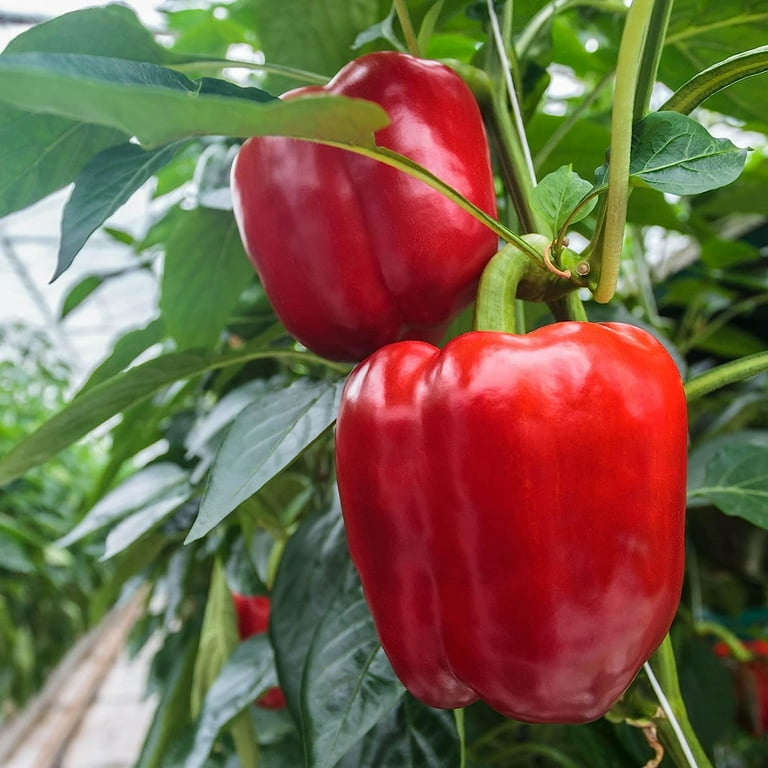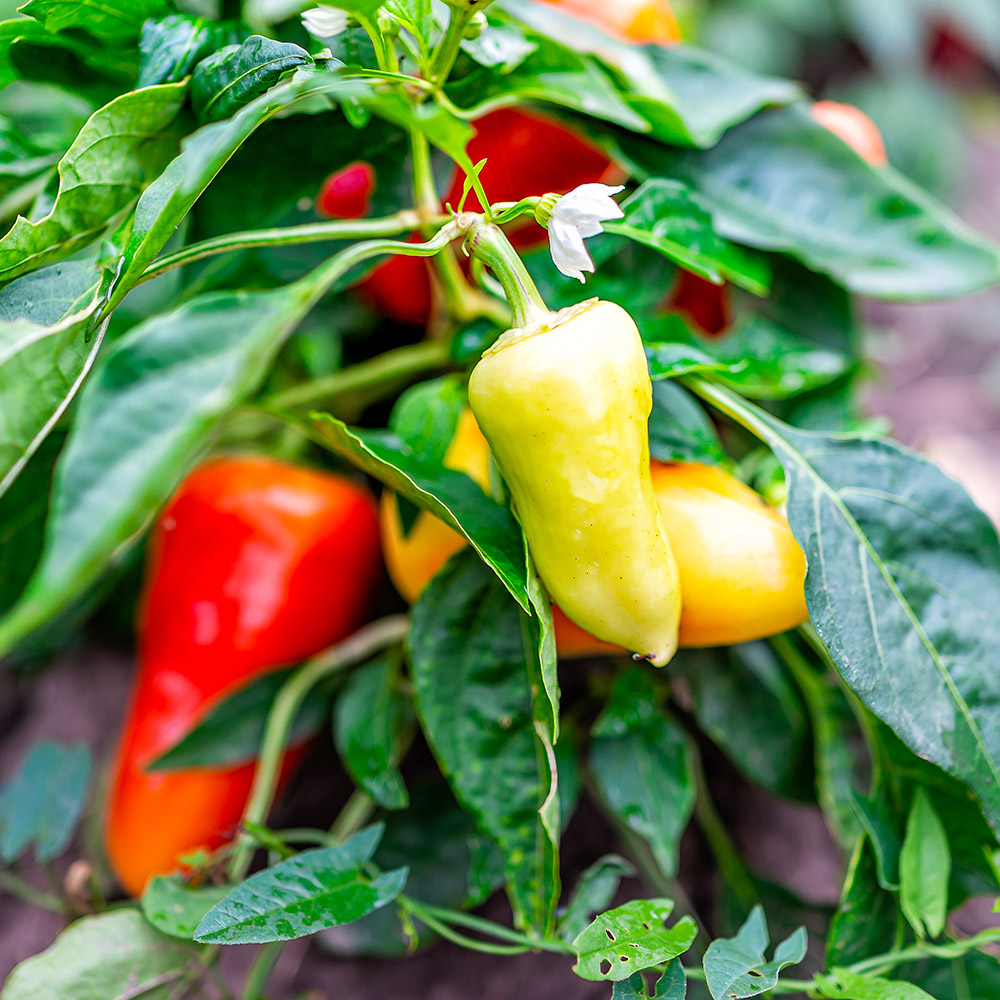Discover the Best Fertilizers for Peppers: Top Picks for Ideal Growth
Discover the Best Fertilizers for Peppers: Top Picks for Ideal Growth
Blog Article
Organic Vs. Synthetic Fertilizers: Which Is Best for Nurturing Healthy Pepper Plants?
In the realm of supporting healthy and balanced pepper plants, the choice in between natural and synthetic fertilizers stands as a critical decision with far-ranging implications. While both choices goal to give essential nutrients to support plant growth, the nuances of their influence on the dirt, plant health and wellness, and the environment spark a debate that echoes throughout the horticulture area. Recognizing the distinctive benefits and potential challenges of each plant food kind is crucial for pepper farmers looking for to enhance their returns while maintaining a lasting and eco-conscious strategy.
Benefits of Organic Plant Foods
Organic plant foods offer an environmentally-friendly and lasting technique to nourishing pepper plants, giving necessary nutrients without making use of artificial chemicals. These all-natural fertilizers are originated from organic sources such as garden compost, manure, bone dish, and seaweed, advertising dirt health and wellness and biodiversity. Unlike synthetic fertilizers, natural alternatives launch nutrients gradually, making certain a stable and well balanced supply for pepper plants to grow.
One considerable benefit of natural fertilizers is their ability to boost soil structure and water retention. By enhancing soil wellness, natural fertilizers promote advantageous microbial activity, which helps in nutrient uptake by pepper plants. In addition, organic plant foods decrease the risk of chemical run-off, safeguarding water resources from pollution and safeguarding the atmosphere.
Moreover, organic plant foods add to long-lasting dirt fertility by advertising the growth of helpful dirt microorganisms. These organisms assist damage down raw material, launching nutrients in a kind that is easily available to pepper plants. best fertilizers for peppers. By fostering a healthy dirt ecosystem, natural fertilizers sustain sustainable pepper growing methods that profit both plants and the environment
Disadvantages of Synthetic Plant Foods
Artificial fertilizers, in comparison to their organic equivalents, position numerous drawbacks when made use of to nourish pepper plants, impacting both plant wellness and ecological sustainability. One significant disadvantage of synthetic plant foods is their tendency to seep nutrients from the soil swiftly.
Additionally, the overuse of synthetic fertilizers can add to water contamination. Excess fertilizers not soaked up by plants can remove into water bodies, causing eutrophication, where algae blooms diminish oxygen levels in the water, hurting water life. Moreover, synthetic fertilizers are normally originated from non-renewable sources, such as nonrenewable fuel sources, contributing to carbon exhausts and ecological destruction throughout their production.
Nutrient Absorption Comparison
Effective nutrient absorption plays a crucial role in the total health and growth of pepper plants. When comparing natural and artificial plant foods in regards to nutrient absorption, organic plant foods have the benefit of supplying a more well balanced and slow-release resource of nutrients (best fertilizers for peppers). Organic plant foods have a range of macro and trace elements that are not just helpful for the plants yet likewise advertise healthy dirt microbial task, which assists in nutrient uptake. On the index other hand, artificial fertilizers commonly offer a fast release of nutrients, which can lead to leaching and runoff, causing reduced nutrient absorption rates by the plants.
Furthermore, natural fertilizers enhance soil structure and water retention ability, permitting pepper plants to access nutrients more successfully. This enhanced soil quality promotes origin advancement, allowing far better nutrient absorption. Synthetic plant foods, although initially increasing plant development as a result of their high nutrient focus, might hinder long-term nutrient absorption by derogatory dirt health over time.
Ecological Impact Considerations

On the various other hand, synthetic fertilizers, although usually more concentrated and instantly readily available to plants, can have detrimental results on the setting if not used effectively (best fertilizers for peppers). Their manufacturing requires high energy inputs, resulting in greenhouse gas emissions and adding to environment modification. The overflow of excess synthetic fertilizers can infect water sources, leading to eutrophication and harming marine ecological communities.
Ideal Fertilizer Practices for Peppers
To accomplish this, it is essential to comply with best fertilizer techniques tailored to the particular demands of pepper plants. One crucial practice is to execute a soil examination before applying any kind of plant foods.
One more crucial technique is to feed pepper plants at the best time. Typically, peppers gain from getting plant food at growing and after that once more when they start to flower. Over-fertilizing can lead to vitamins and mineral inequalities and harm the plants, so it is crucial to comply with recommended application prices.
Additionally, selecting a well balanced plant food with an NPK ratio that suits pepper plants' needs is fundamental. Ultimately, incorporating natural and synthetic plant foods sensibly can assist nurture healthy and balanced pepper plants while decreasing environmental impact.
Conclusion

Organic plant foods offer a lasting and environmentally-friendly technique to beneficial pepper plants, offering necessary nutrients without the use of synthetic chemicals. Unlike synthetic fertilizers, natural choices launch nutrients gradually, guaranteeing a constant and balanced supply for pepper plants to thrive.
Synthetic plant foods, in contrast to their organic equivalents, position numerous disadvantages when made use of use this link to nurture pepper plants, affecting both plant health and ecological sustainability. When contrasting organic and artificial plant foods in terms of nutrient absorption, organic fertilizers have the benefit of giving a more well balanced and slow-release resource of nutrients.Additionally, organic fertilizers enhance dirt structure and water retention ability, allowing pepper plants to gain access to nutrients more efficiently.
Report this page